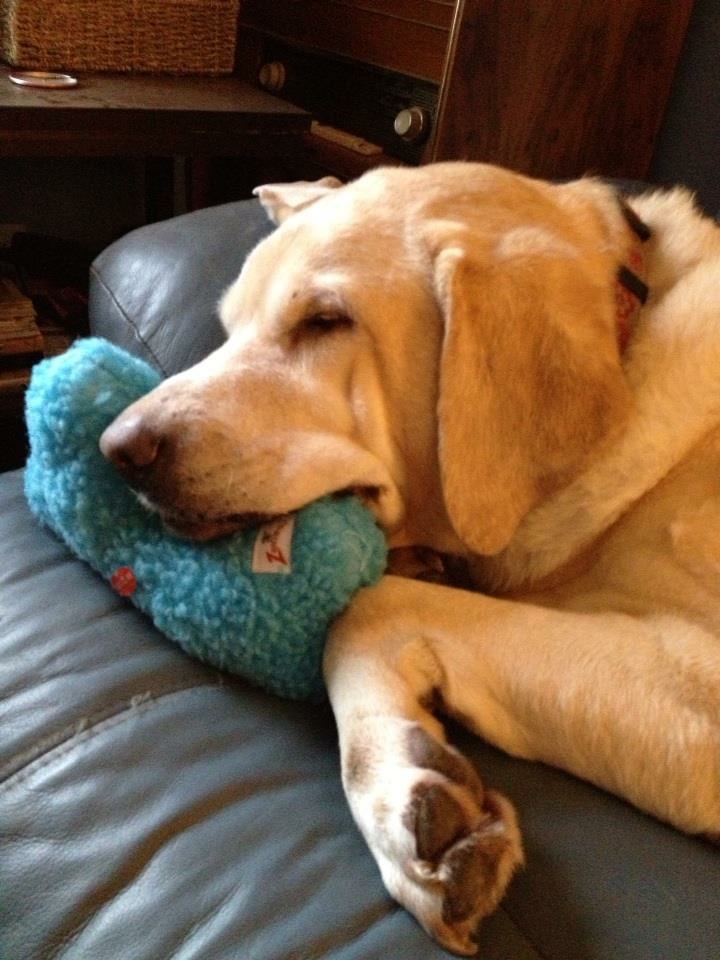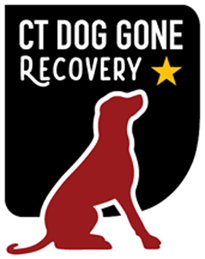First Aid Kit for Your Dogs
CT Dog Gone Recovery Volunteers encourages pet owners to always have certain items on hand in the event of something happening with your pet. The following is a list of these items. In addition to the items listed above, include anything your veterinarian has recommended specifically for your pet.
Free Brochures on brought to you by the American Veterinary Medical Association Pet First Aid PET FIRST AID, Disaster Preparedness For The Whole Family,

| Item | Info/use | Have |
|---|---|---|
| Local Veterinarian Number • Call your veterinarian or an emergency veterinary clinic so they can be ready for you when you arrive. | ||
| Emergency Clinic Number • Call your veterinarian or an emergency veterinary clinic so they can be ready for you when you arrive. | ||
| Numbers for the Animal Poison Control | ASPCA poison-control center, at 1-800-426-4435) | |
| Animal Control | ||
| Non-emergency police | ||
| Pet First Aid Book | ||
| Pet’s Paperwork | (Waterproof Container or Bag): -Proof of rabies-vaccination status, -Copies of other important medical records -Current photo of your pet (in case he gets lost). | |
| Nylon leash/Slip Lead and Collar | ||
| Pet Carrier | ||
| Muzzle or strips of cloth | To prevent biting (Animals might bite when injured or ill) (don’t use muzzle if your pet is vomiting, choking, coughing or otherwise having difficulty breathing) | |
| Non-latex Disposable Gloves | Exam Gloves | |
| Self-Cling Bandage | Bandage that stretches and sticks to itself but not to fur. | |
| Digital Thermometer -Rectal only- | Normal dog and cat temperature are 38.5 C or 101.5 F- | |
| Lubricating jelly or KY Jelly | – for the thermometer | |
| Pedialyte | -electrolyte solution for dehydration | |
| Honey | -to rub on gums in case of diabetic coma, or anorexia | |
| Syringes or Eye Dropper | -to force water or pedialyte to give oral treatments or flush wounds | |
| Hot Water Bottles | -in case of hypothermia or shock | |
| Foil Emergency Blanket | Prevent and counter Hypothermia Help prevent shock | |
| Instant Ice | Sprains and Strains | |
| Scissors (Blunt Ends) | ||
| Tongue depressor or splints | ||
| Adhesive Medical Tape | Wounds | |
| Cotton Gauze Squares or Absorbent Gauze Pads | Wounds | |
| Gauze Rolls | Wounds | |
| Cotton Swabs | Wounds | |
| Tweezers | To Remove Foreign Bodies | |
| Eye Bright Solution | – a homeopathic or herbal solution for eye issues | |
| Antiseptic wipes, Lotion, Powder or Spray | Wounds | |
| Styptic powder or pencil | Stop Bleeding | |
| 3% Hydrogen Peroxide | -to induce vomiting—do this only when directed by a veterinarian or a poison-control expert – to clean cuts | |
| Rubbing Alcohol | -to clean cuts and thermometor | |
| Sterile Saline Solution | -wound care | |
| GoldenSeal or Calendula ( Itchy Owie Ointment is fabulous) |
-ointment for injuries | |
| Rescue Remedy | Calming | |
| Gold Vet | Calming | |
| Arnica | Pain Relief | |
| Kaopectate or BM Tone Up Gold | for diarrhea | |
| Slippery Elm | Digestive disorders | |
| Yunnan Baiyao | -a chinese herb for bleeding, can be given topically or orally | |
| MILK OF MAGNESIA OR ACTIVATED CHARCOAL | to absorb poison (Use only if instructed to do so by your veterinarian or a poison control center) | |
| Diphenhydramine (Benadryl®) | Allergies ( if approved by a veterinarian for allergic reactions. A veterinarian must tell you the correct dosage for your pet’s size) | |
| Ear-cleaning solution | Antibacterial, Antifungal and Antiviral. | |
| Glucose Paste or Corn Syrup | for diabetic dogs or those with low blood sugar) | |
| Penlight or flashlight | ||
| Towels |
